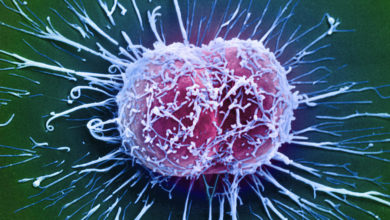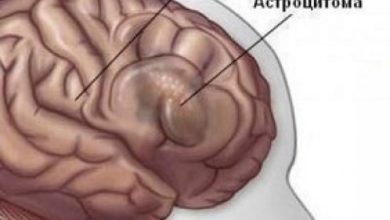Brain astrocytoma
The content of the article
Astrocytoma of the brain (ICD code 10):
- malignant brain tumor, C71;
- brain tumor, as well as the central nervous system, having an unknown origin of an uncertain nature, D43.
This group of primary tumors, despite its astroglial origin, has a number of characteristics, such as:
- localization,
- clinical course,
- age and gender characteristics,
- tumor stage.
On average, every year in 6 cases per 100,000 people, astrocytoma . There are no age restrictions for this type of neoplasm, and people of all ages can suffer from the disease. At the same time, child mortality due to astrocytoma is in second place after a disease such as leukemia. But the bulk of the identified cases relate to young people who learn about the presence of a tumor completely by accident.
Malignant neoplasms progress quickly, which cannot be said about benign tumors. They occur for a long time without causing any particular inconvenience to the person, which allows the tumor to develop to an impressive size before the presence of the disease becomes known.
Alleged reasons for development
Despite significant advances in the field of medicine and constant study of brain cancer, the question of why a tumor develops remains open to this day. It is only known about the accompanying factors that provoke certain pathological transformations. The most common causes that can result in astrocytoma are:
- a person for some reason has been exposed to radiation for a long time;
- the person has been exposed to mercury, lead and other chemicals;
- regularly consumed nicotine and alcohol in large quantities;
- there is a genetic predisposition, the presence of cancer patients in the family;
- ever suffered a traumatic brain injury;
- a person suffers from immunodeficiency, a relationship can be traced between favorable conditions and the appearance of a malignant neoplasm. However, the presence of one of the above factors does not indicate an absolute tendency to a brain tumor.
Practice shows that the combination of several conditions in the brain can begin the process of glioma . But it is impossible to say that the appearance of a malignant tumor is caused by one specific factor.
Classification
All types of brain tumors are differentiated depending on their location:
- located in the upper part of the brain - subtentorial, the vast majority of cases of this type of tumor are detected in childhood,
- located in the lower part of the brain - supratentorial, most often found in middle-aged people.
In exceptional cases, spinal cord astrocytoma may develop as a result of metastases from the brain.
Degrees of malignancy
Another criterion is the degree of malignancy of the tumor, which is determined by histological analysis. There are four degrees of malignancy in total. Piloid astrocytoma of the brain, which in the vast majority of cases is detected in children, belongs to the first degree and is within 10% of all brain tumors.
Symptoms of astrocytoma
The symptoms of brain astrocytomas are largely influenced by indicators such as the morphology of the structure, as well as the localization of the tumor.
External signs that may be caused by the development of astrocytoma are not always perceived as a reason for examination. Regular headaches , sudden attacks of pain, especially at night or in the morning; a gag reflex caused by spasms or seemingly causeless nausea can be the first sign of tumor development.
In addition, there is regular dizziness, tinnitus, pale skin, and a short-term loss of the ability to independently navigate in space.
The development of a neoplasm can also provoke a disturbance in the patient’s psyche. A person becomes inattentive, forgetful, drowsy, aggressive, and has lost all interest in the world around him. With neoplasms that are not malignant, the patient’s mental disorder may appear late. Otherwise, the mental state suffers much faster, and the condition worsens quite rapidly. Another sign to look out for is epileptic seizures. They talk about damage to the frontal lobe of the brain, which is quite common in epilepsy.
Timely seeking qualified medical care ensures that the necessary services are provided in the fight against brain cancer.
Please rate the article:





